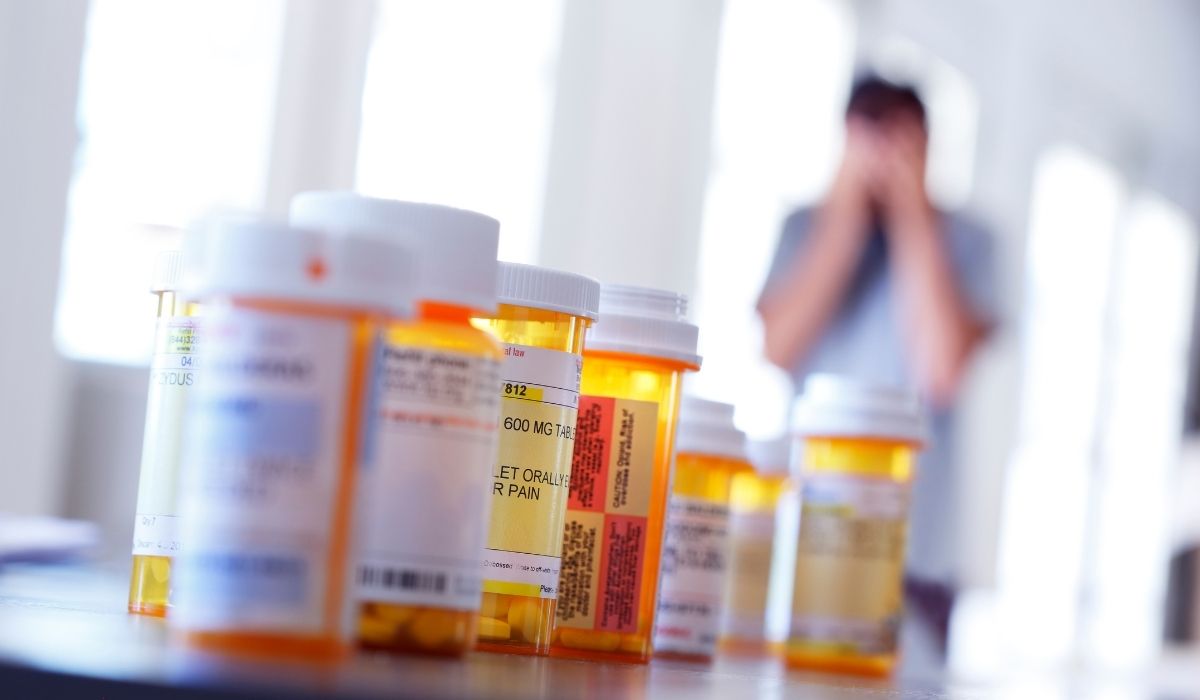Understanding Fentanyl and Its Addictive Nature
Fentanyl is a powerful opioid. Doctors sometimes use it as a strong analgesic (pain reliever) after surgery or for people with severe pain. It can be given as a tablet, patch, or injection. But fentanyl can also be very dangerous. Even a small dose can cause an opioid overdose, and many people wonder, why is fentanyl so addictive?
The truth is, fentanyl affects the brain in a way that creates strong feelings of euphoria (a sudden rush of pleasure). This makes people want to use it again and again, even when it harms their health.

How Fentanyl Works in the Brain
The Role of Opioid Receptors
The brain and nervous system have special spots called receptors. These receptors help control pain, mood, and even sleep. Fentanyl, like morphine and oxycodone, attaches to these opioid receptors.
When fentanyl connects, the reward system in the brain gets flooded with feel-good chemicals. This creates a powerful “high” and teaches the brain to crave more.
Why Fentanyl Is Stronger Than Other Opiates
Unlike opium or other opiates, fentanyl is made in a lab and is much stronger. In fact, the Centers for Disease Control and Prevention (CDC) explains that fentanyl can be 50 to 100 times stronger than morphine. Because of this strength, even a tiny lethal dose can stop breathing and cause death.
Why Fentanyl Is So Addictive
Rapid High, Rapid Craving
When someone takes fentanyl, it quickly enters the blood and goes to the brain. Whether taken as a tablet, patch, or injection, fentanyl produces a fast, intense high. The faster the high, the faster cravings grow.
The Link to Mental Health
People who struggle with anxiety, stress, or major depressive disorder may turn to fentanyl as a way to cope. But instead of helping, it creates a cycle of addiction and worsens mental health.
Sleep and Health Problems
Another reason fentanyl is addictive is because of the side effects. Many people develop insomnia, mood swings, or diarrhea. These issues make them use more fentanyl to escape the discomfort, deepening the cycle.
The Dangers of Fentanyl
Opioid Overdose Risks
Because fentanyl is so strong, the line between a normal dose and a lethal dose is very small. Many people experience opioid overdose, which can stop breathing and lower blood pressure.
Fentanyl Mixed with Other Drugs
The Drug Enforcement Administration (DEA) warns that fentanyl is often mixed with xylazine, alcohol, or other drugs like oxycodone. This makes it even more dangerous.
Hidden Fentanyl in Pills
Some people take counterfeit pills thinking they are safe. But these tablets often contain fentanyl without the person knowing. That’s why using fentanyl test strips can be a life-saving tool.

How Addiction Develops
The Reward System Trap
Every time fentanyl is used, the brain’s reward system lights up. Over time, the brain becomes dependent on the drug to feel normal. Without fentanyl, people may feel strong withdrawal symptoms.
Physical Dependence
When the body gets used to fentanyl, stopping suddenly can cause drug withdrawal. This may include anxiety, sweating, stomach cramps, or diarrhea.
Increased Tolerance
As tolerance builds, a person needs higher doses to get the same effect. This increases the risk of overdose and pushes the body closer to disease and serious health problems.
Signs of Fentanyl Addiction
-
Needing higher doses to feel relief
-
Trouble with sleep or insomnia
-
Feeling high levels of stress or anxiety
-
Problems with health such as weight loss or diarrhea
-
Secretive behavior and seeking more of the drug
Treatment Options for Fentanyl Addiction
Medical Support and Psychiatry
Doctors trained in internal medicine and psychiatry can provide medication and monitoring to help patients recover safely.
Therapy and Mental Health Care
At Mountain Sky Recovery, therapy is a core part of healing. Treatments like individual therapy, group therapy, and coping skills training help with both mental health and substance abuse recovery.
Medication and Naloxone
Sometimes, medicines like naloxone are used to reverse an opioid overdose. Other medications can help manage cravings and withdrawal.
Building Healthy Habits
Good health care also includes better sleep, nutrition, physical activity, and ways to manage stress without relying on drugs.
The Role of Support in Recovery
Family and Community Support
Family members can play a big role in recovery. Open communication, support groups, and positive encouragement all help.
Addiction Is a Disease
It’s important to remember that addiction is not just bad behavior—it is a disease. With the right care, recovery is possible.
Choosing the Right Treatment Center
Not all treatment is the same. At Mountain Sky Recovery, patients are treated with dignity and respect. Each person receives a plan that meets their unique needs.
Preventing Fentanyl Addiction
Public Education
Groups like the Centers for Disease Control and Prevention and the Drug Enforcement Administration work to spread awareness about the dangers of fentanyl.
Safer Choices
Avoiding street tablets, using fentanyl test strips, and knowing the risks can help prevent tragedy.
Stress Management
Finding healthy outlets for stress—like therapy, exercise, or hobbies—reduces the chance of turning to opioids.
Final Thoughts
So, why is fentanyl so addictive? Because it hijacks the brain’s reward system, creates fast and intense euphoria, and traps people in a cycle of substance abuse and addiction.
Even though fentanyl is used as a medication for severe pain, misuse can lead to life-threatening opioid overdose. But with support, therapy, and the right treatment center, recovery is possible.
At Mountain Sky Recovery, our team helps patients and families find hope and healing from fentanyl addiction.

Seeking Treatment? We Can Help!
We work with PPO Out of Network Health Insurance Policies
If you or a loved one are struggling with mental health challenges or substance abuse, reach out to Mountain Sky Recovery today. Our team of compassionate professionals is here to support your journey towards lasting well-being. Give us a call at 951-498-5412. Visit SAMHSA for more information.



